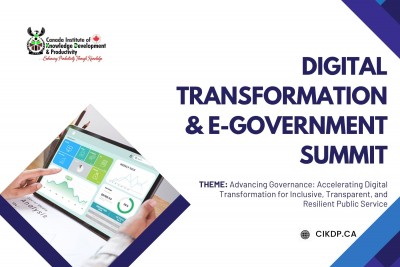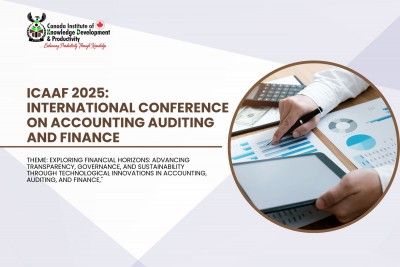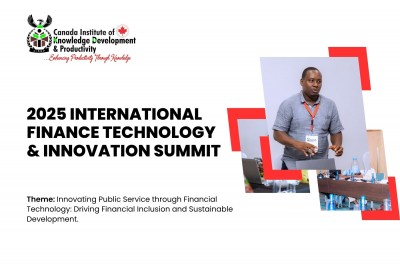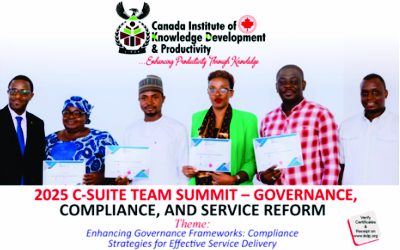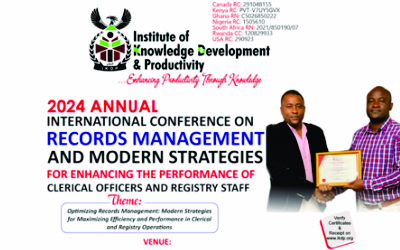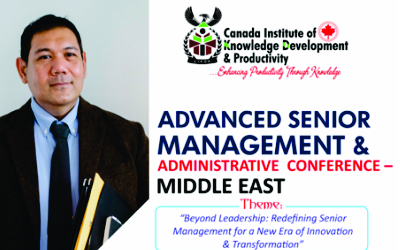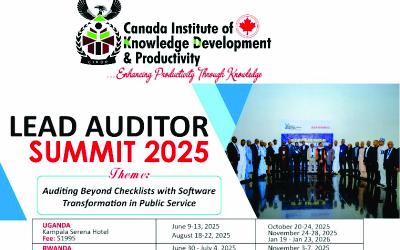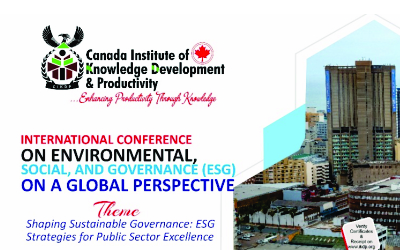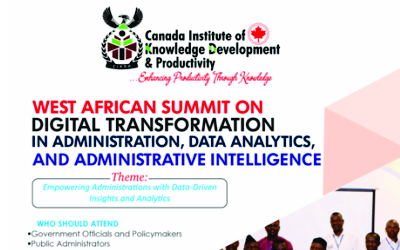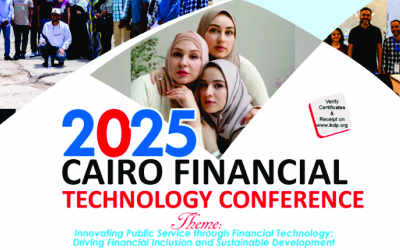THE CONFERENCE
In an era defined by rapid technological evolution, governments around the world face increasing pressure to modernize, digitize, and humanize public service delivery. The Digital Transformation and e-Government Summit, under the theme “Advancing Governance: Accelerating Digital Transformation for Inclusive, Transparent, and Resilient Public Service, brings together policymakers, technologists, industry leaders, and thought influencers to explore the next frontier of digital governance
This summit aims to unpack the strategies, innovations, and policies driving effective digital transformation in the public sector. Through high-level dialogues, case studies, and solution-driven panels, participants will gain insights into building robust digital infrastructures, enhancing citizen engagement, ensuring cybersecurity, and creating data-driven ecosystems that promote trust, efficiency, and inclusion
As nations strive to meet the rising expectations of digitally empowered citizens, this event serves as a vital platform to share best practices, foster collaboration, and shape the future of governance that is not only smarter—but also fairer, more transparent, and more resilient.
By the end of this summit, participants will be able to:
- understand emerging trends and global best practices in digital transformation and e-Government implementation;
- develop actionable strategies to enhance digital service delivery, data governance, and citizen-centric platforms;
- identify tools and technologies that drive efficiency, transparency, and innovation in the public sector;
- strengthen policy frameworks and digital infrastructure to support inclusive and resilient governance;
- foster cross-sector and cross-border collaborations to accelerate digital progress and knowledge sharing; and
· navigate challenges related to cybersecurity, digital equity, and change management in government modernization efforts.
SUMMIT MOUDLES
Module 1: The Future of Governance in the Digital Age
Objective: Set the strategic context for digital transformation in the public sector.
Topics:
- The evolving role of government in a digital society
- Global trends in e-Government and smart governance
- Digital maturity models for public institutions
- Leadership and vision in public sector innovation
Module 2: Building Inclusive and Citizen-Centric Digital Services
Objective: Explore how digital tools can make governance more equitable and responsive.
Topics:
- Designing inclusive digital services (accessibility, language, equity)
- Citizen experience (CX) and user-centered public service design
- Digital inclusion for underserved and remote populations
- Co-creation with citizens and civil society
Module 3: Infrastructure, Data, and Emerging Technologies
Objective: Highlight enabling technologies and infrastructure for resilient e-Government.
Topics:
- Cloud computing, 5G, and IoT in public service delivery
- Open data, big data analytics, and AI for policy-making
- Interoperability and digital ID systems
- Building secure and scalable digital infrastructure
Module 4: Policy, Regulation, and Digital Trust
Objective: Strengthen the regulatory and ethical backbone of digital transformation.
Topics:
- Cybersecurity, data privacy, and digital sovereignty
- Regulatory innovation and agile governance
- Ethics and accountability in algorithmic decision-making
- Legal frameworks for e-Government and digital rights
Module 5: Institutional Readiness and Capacity Building
Objective: Equip public institutions for sustainable transformation.
Topics:
- Digital skills and workforce transformation
- Change management in government digitalization
- Public sector innovation labs and sandboxes
- Measuring impact and performance of digital initiatives
Module 6: Collaboration, Partnerships, and Global Exchange
Objective: Promote knowledge-sharing and multi-stakeholder engagement.
Topics:
- Public-private partnerships for digital transformation
- Regional cooperation and international benchmarks
- Case studies: Success stories from leading digital governments
- Multi-stakeholder dialogue for resilient digital ecosystems
WHO SHOULD ATTEND
- Ministers and Deputy Ministers (Digital Economy, ICT, Public Service)
- Permanent Secretaries and Director-Generals
- Chief Information Officers (CIOs) and Chief Digital Officers (CDOs)
- Heads of e-Government or Digital Transformation Units
- Policy Makers and Senior Government Advisors
- Local Government Executives (Mayors, Municipal ICT Heads)
What will i learn?
- Understand emerging trends and global best practices in digital transformation and e-Government implementation
- Develop actionable strategies to enhance digital service delivery, data governance, and citizen-centric platforms
- Identify tools and technologies that drive efficiency, transparency, and innovation in the public sector
- Strengthen policy frameworks and digital infrastructure to support inclusive and resilient governance
- Foster cross-sector and cross-border collaborations to accelerate digital progress and knowledge sharing
Frequently asked question

Omalicha Alex
Available dates
- August 18-22, 2025 September 1-5, 2025 November 17-21, 2025 December 15-19, 2025 January 12-16, 2026
